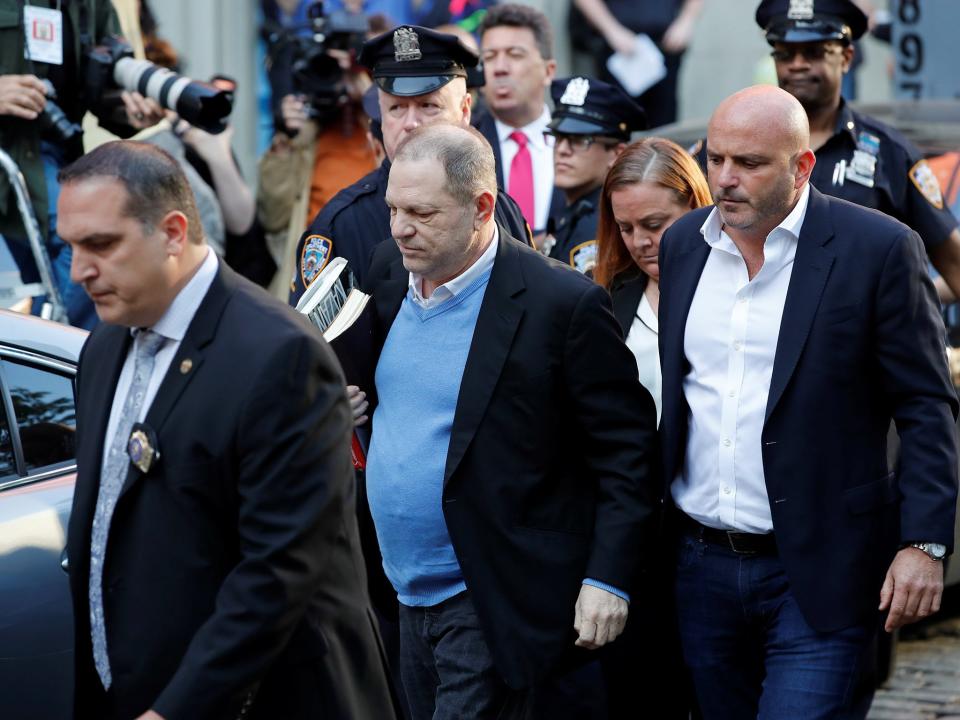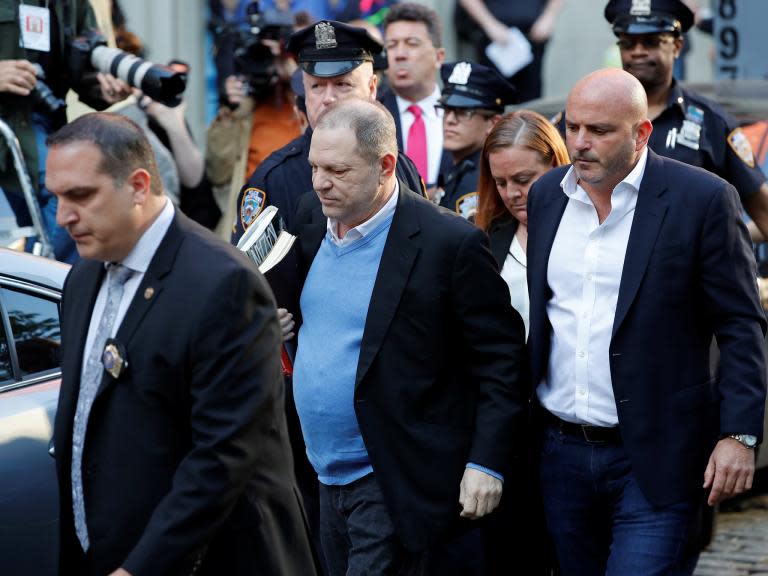Harvey Weinstein’s PR machine means the battle for justice is far from over
Harvey Weinstein has finally turned himself into the police in New York and been charged with two cases of serious sexual misconduct. What took him so long?
To date, more than 70 women have accused the once-lauded film producer of assault – but he has remained silent since the allegations first aired in the New Yorker. The accusers’ stories are eerily similar – and yet most of these women have never met. They share a common theme – a powerful man abusing his position and then threatening his victim with career suicide if she went public.
Weinstein has spent months in a clinic being treated for sex addiction – and at the same time assembling a detailed game plan to maximise his chance of evading jail and financial ruin. In this battle of the sexes, the odds are unevenly stacked.
Weinstein’s defence lawyer gave an interview to the BBC claiming his client was “lonely and angry” and that the charges were “legally defective and not factually supported”. We expect nothing less from a man so used to getting his own way that his employees lived in fear of his temper tantrums. The man who demanded a nightly “turndown service” in hotel rooms from the girls in his office.
When the allegations surfaced, Weinstein issued an extraordinary statement which laid bare his devastating arrogance and refusal to accept blame. He said “I came of age in the 60s and 70s when all the rules about behaviour and workplaces were different. That was the culture then”. That, in a nutshell, was his big excuse, accompanied by a bland apology.
Although his accusers will be heartened that (finally) he is going to be tried in a court of law rather than the bear pit of public opinion and media frenzy, they will not be celebrating because a long and dirty fight lies ahead. They might be optimistic for success because (finally) Bill Cosby has been found guilty of three counts of sexual assault and could (at 80) face the rest of his life in jail. But there are worrying parallels between the two cases – when Andrea Constad went to the police in 2005 and told them she had been drugged and attacked by Cosby, they decided not to prosecute. She took a payment of $3.4m (£2.5m) in 2006 from the man known as “America’s Dad” which bought her silence. In 2015, after dozens of women came forward with similar stories, the DA decided to try again, but the first trial ended with a hung jury. It took a retrial to get a conviction, and now Cosby is out on bail, “feeling cheerful” according to his lawyer, and planning his appeal.
Although justice has been done, this story is nowhere near over. The same with Weinstein, who has posted $1m in cash to remain out of jail and agreed to wear a monitoring device and surrender his passport.
The New York district attorney was first alerted to Weinstein’s offensive behaviour in 2015, when an Italian model went to the police accusing him of groping her breasts during a meeting in his office. The DA declined to bring charges back then, and they have spent the last few months travelling the world, building their case. In Cosby’s case, although statute of limitation laws meant that only one victim was heard, the judge allowed five accusers to describe their experiences at the hands of the comedian, in order to establish a pattern of behaviour. All their stories tallied, even though they had not met. They were given blue pills by the actor, which rendered them incapable of fighting off his attentions.
In Weinstein’s case, the prosecution will be hoping the judge allows some of the many other women he has allegedly attacked to testify. Weinstein has not only used money to buy their silence, he has employed PR companies and private detectives to make these women’s lives a misery, threatening them through third parties. Expect his lawyers to spend time in court trashing reputations and implying his accusers are nothing more than sluts.
His lawyers have already likened the #MeToo movement to “mob rule”. Certainly, the #MeToo movement has given confidence to women who previously would have been reluctant to name famous men – another American icon, award-winning actor Morgan Freeman, has been accused of inappropriate behaviour and sexual harassment after eight women spoke to the television network CNN. He is alleged to have touched them without their consent, and made offensive remarks about their appearance. The actor immediately issued an apology, saying his behaviour was “unintentional”. Doesn’t that have a familiar sound? A PR machine gliding into damage limitation mode.
Detectives in Los Angeles and London are deciding whether to proceed with charges against Harvey Weinstein, but I wouldn’t put a large sum of money on their chances of success. Will #MeToo result in victims being believed rather than doubted in the courtroom? I’d like to think so, but this remains a very uneven battle.

 Yahoo News
Yahoo News 

